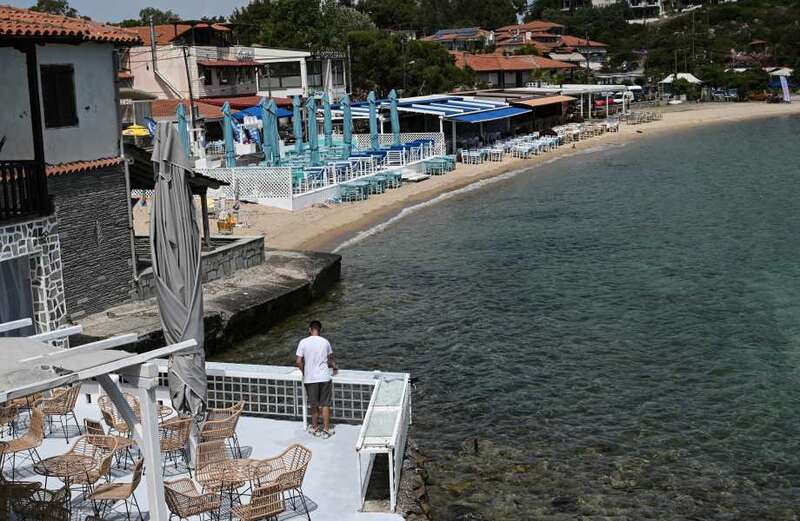GREECE is cracking down on beach sunloungers this summer after locals have said they've "taken over".
Along with beautiful beaches, another common sight across the European destination is the huge lines of sunbeds right next to the sea, as well as tables and chairs from nearby restaurants.



Win one of 8 incredible holidays to Florida, Spain, the Caribbean and a Kent safari by voting in The Sun's Travel Awards - enter to win here
However, many of these are unlicensed and without the correct permits.
The Greek government is now cracking down on the illegal loungers and chairs littering the beach.
 I'm a flight attendant who only carries hand luggage on holiday - here's how
I'm a flight attendant who only carries hand luggage on holiday - here's how
Pensioner Evgenia Rapti, who has as holiday home near Pefkochori Beach, said it was "completely different" when they bought the house 40 years ago.
The 64-year-old said: "The beach was empty and it was nice to lie there.
"[Now] the whole beach has been taken over."
A number of protests have taken place in recent months, with locals slamming the bars and restaurants covering the beaches with loungers and tables.
George Theodoridis, one of the activists campaigning against it, said: "The problem with beaches in Greece is entrepreneurs who, either with a permit or through encroachment, cover parts of the coast with sunbeds, umbrellas, tables and even permanent structures."
They come with a cost too, with two sunloungers as much as €40 a day.
But the crackdown has seen the government launch new drones to moniter the beaches, as well as an app where people can report the loungers.
More than 6,000 complaints have already been lodged through the MyCoast app since it launched in April.
New rules were introduced back in March in a bid to crackdown.
Deck chairs and umbrellas must be at least four metres from the sea, and rentals are not permitted on any beaches with less than four metres of sand.
 I'm a pilot - the passenger habit that drives me mad and I bet you're guilty
I'm a pilot - the passenger habit that drives me mad and I bet you're guilty
Up to 70 per cent of Greek beaches must be free from sunbeds, while protected areas must be 85 per cent free.
One beach bar on the island of Rhodes even had their license suspended after putting sunloungers in the sea.
More than 6,500 beachfront licenses have been authorised, with plans to add another 1,200 this summer to regularise the situation.
Last summer, protests dubbed the Towel Movement swept across islands such as Naxos and Paris against the expensive sunloungers.
Hitting as high as €100 on the more popular islands, hundreds of locals staged sit ins on the beach against them.
Seventy-year-old resident Nicolas Stephanou told The New York Times that locals felt "pushed off the island".
The mayor of Paros said at the time: "The problem is real. We want to solve it and we will not allow any arbitrariness to exist on our island.
"We are checking the businessmen for possible illegal occupation of part of the beach, the relevant expert reports have been sent to the State Real Estate Company, the agency to which all Greek beaches belong."
Also cracking down on beach sunloungers is Spain - but against tourists instead.
Anyone caught trying to save a space with an umbrella or lounger could be fined up to £650.
And hotel sunlounger wars are ramping up again, with desperate tourists caught queueing as early as 6am to nab the best one by the hotel pool.
Earlier this month, two men were slammed as being "selfish" after being spotted lying on at least three deckchairs each, piled on top of each other and covered in towels.
It came just days after two British tourists were kicked off their sun loungers by security after trying to reserve them at 8:40am, much earlier than allowed by the hotel.



































